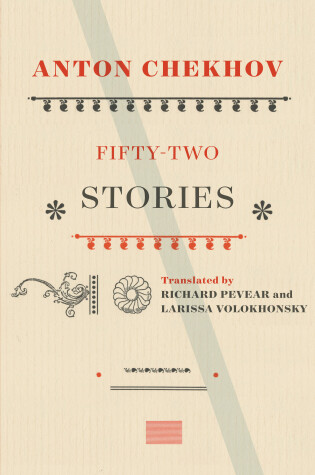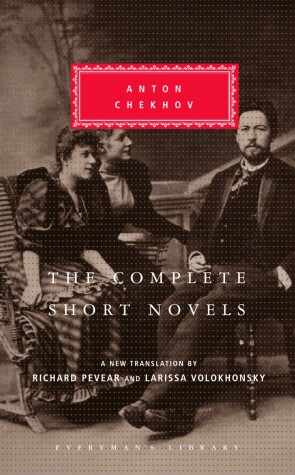Vintage Classics
2 total works
Anton Chekhov left an indelible impact on every literary form in which he wrote, but none more so than short fiction. Now, renowned translators Richard Pevear and Larissa Volokhonsky give us their renderings of fifty-two Chekhov stories. These stories, which span the complete arc of his career, reveal the extraordinary variety and unexpectedness of his work, from the farcically comic to the darkly complex, showing that there is no one single type of “Chekhov story.” They are populated by a remarkable range of characters who come from all parts of Russia and all walks of life, including landowners, peasants, soldiers, farmers, teachers, students, hunters, shepherds, mistresses, wives, and children. Taken together, they demonstrate how Chekhov democratized the form.
Included in this volume are tales translated into English for the first time, including “Reading” and “An Educated Blockhead.” Early stories such as “Joy,” “Anguish,” and “A Little Joke” sit alongside such later works as “The Siren,” “Big Volodya and Little Volodya,” “In the Cart,” and “About Love.” In its range, in its narrative artistry, and in its perceptive probing of the human condition, this collection promises profound delight.
Anton Chekhov, widely hailed as the supreme master of the short story, also wrote five works long enough to be called short novels–here brought together in one volume for the first time, in a masterly new translation by the award-winning translators Richard Pevear and Larissa Volokhonsky.
The Steppe—the most lyrical of the five—is an account of a nine-year-old boy’s frightening journey by wagon train across the steppe of southern Russia. The Duel sets two decadent figures—a fanatical rationalist and a man of literary sensibility—on a collision course that ends in a series of surprising reversals. In The Story of an Unknown Man, a political radical spying on an important official by serving as valet to his son gradually discovers that his own terminal illness has changed his long-held priorities in startling ways. Three Years recounts a complex series of ironies in the personal life of a rich but passive Moscow merchant. In My Life, a man renounces wealth and social position for a life of manual labor.
The resulting conflict between the moral simplicity of his ideals and the complex realities of human nature culminates in a brief apocalyptic vision that is unique in Chekhov’s work.

